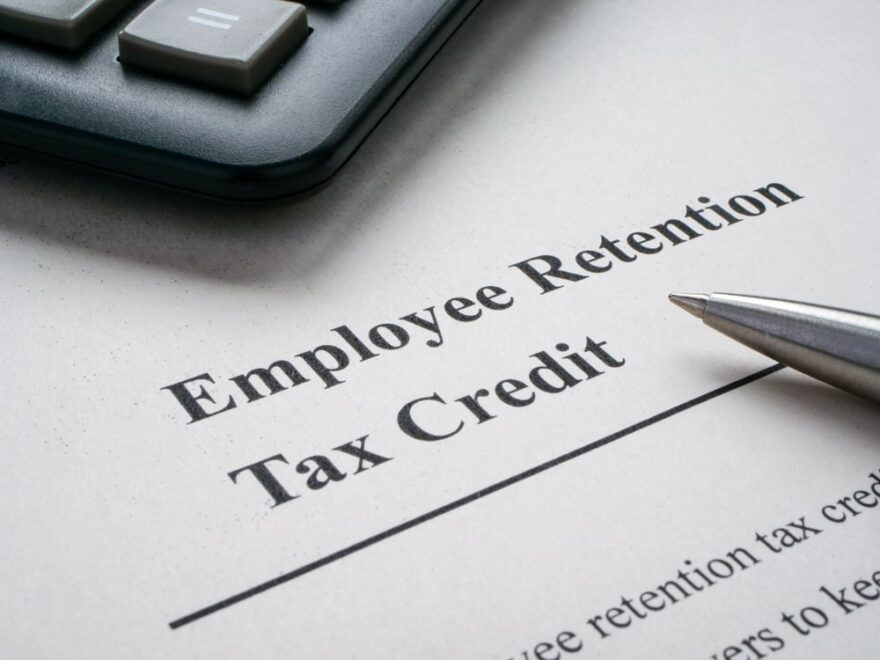
On December 21, 2023, the Internal Revenue Service (IRS) introduced a new Voluntary Disclosure Program. This program is designed to help businesses that have mistakenly filed claims for the Employee Retention Credit (ERC) to pay back the money they received in error. The initiative is part of the IRS’s ongoing efforts to address questionable claims and prevent aggressive marketing around the credit.
” The disclosure program provides a much-needed option for employers who were pulled into these claims and now realize they shouldn’t have applied,” said IRS Commissioner Danny Werfel. He added that the program “will also help with our ongoing efforts to gather information on promoters who created this situation by aggressively pushing people to apply for the credit.”
Employers who wish to take advantage of the special disclosure program can repay 80% of the claim received until March 22, 2024. If the employer received interest on their ERC refund claim from the IRS, they will not be required to repay that interest. Employers who are unable to repay the required 80% of the credit may be able to apply for an installment agreement, which will be considered on a case-by-case basis. To apply for an installment agreement, employers must submit and have their Form 433-B, Collection Information Statement for Businesses reviewed.
The IRS decided to offer an 80% repayment because many employers were charged high fees by ERC promoters at the time of payment or in advance and may not have received the full ERC claimed. According to Werfel, the 80% repayment offered under the disclosure program is much more generous than the IRS’s later actions, which involve steeper costs and greater risks. The IRS hopes that those who are eligible for the refund will take advantage of this opportunity now.
Qualifying for the Program
To be eligible for the program, the employer must provide the IRS with the following information about their claim: the names, addresses, and telephone numbers of any advisors or tax preparers who assisted them, as well as details about the services provided. This step is crucial for the IRS to gather information about promoters who aggressively pushed people to apply for the credit.
Commissioner Werfel emphasized the importance of this measure for the ongoing efforts of the agency.
Additionally, Commissioner Werfel confirmed that if a taxpayer has already received one of the 20,000 ERC disallowance letters mailed by the IRS earlier this month, they will not be qualified for the Voluntary Disclosure Program. He noted that receiving such a letter from the IRS disqualifies the taxpayer from the program. IRS Announcement 2024-3 discusses more qualification criteria.
Who Can Apply?
If an employer has received the Employee Retention Credit (ERC) for a tax period but is not entitled to it, they can still apply for the program if the following conditions are met:
• They are not under criminal investigation and should not have been notified of any such investigation.
• They should not be undergoing an IRS employment tax examination for the tax period for which they are applying to the Voluntary Disclosure Program.
• They should not have received an IRS notice and demand for repayment of part or all of the ERC.
• The IRS should not have obtained information from a third party stating that the taxpayer is not in compliance or acquired information directly relevant to the noncompliance from an enforcement action.
How to Apply for the Employee Retention Credit Voluntary Disclosure Program
To apply for the Employee Retention Credit Voluntary Disclosure Program, the employer must first file Form 15434 Application for Employee Retention Voluntary Disclosure Program. This form can be submitted using the IRS Document Upload Tool. If the employer is eligible for the program, they will be expected to repay their full ERC, minus the 20% reduction allowed through the program. In case the employer is unable to pay the amount in full, they may set up an installment agreement under certain conditions.
If the ERC was claimed for any tax period ending in 2020, Form SS-10, Consent to Extend the Time to Assess Employment Taxes, must be submitted with Form 15434.
Applying when Outsourcing Payroll
Employers often hire third-party services to manage their payroll obligations. These third-party services use their own Employer Identification Number (EIN) to report, collect, and pay employment taxes on behalf of the employer. In order to participate in the voluntary disclosure program the third-party service, not the employer, must file Form 15434.
After the Application is Approved
If an employer’s application for the program is approved by the IRS, they will receive a closing agreement by mail. The employer must then repay 80% of the ERC they received through the Electronic Federal Tax Payment System (EFTPS), either online or by phone.
If taxpayers are unable to pay the amount in full, they may enter into an installment agreement with the IRS to pay over time. However, under the standard installment agreement policy, penalties and interest will apply. The IRS recommends obtaining a loan from a financial institution to avoid the costs of an installment agreement with the IRS. Once payment has been made, the employer must return the signed closing agreement to the IRS within 10 days of the date of mailing by the IRS.
The IRS has provided a set of Frequently Asked Questions as part of a larger set of information on ERC to help employers understand the terms of the program.
Employee Retention Credit Claim Withdrawal
The IRS is accepting and processing requests to withdraw an employer’s ERC claim under the special withdrawal process until at least the end of the year. This option allows certain employers who have filed for the ERC but have not yet received a refund to withdraw their submission. Doing so helps them avoid future repayment, interest, and penalties.. They can also withdraw their claim if they have received a check but have not yet deposited or cashed it.

